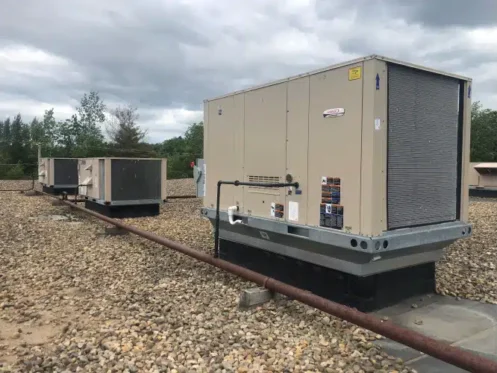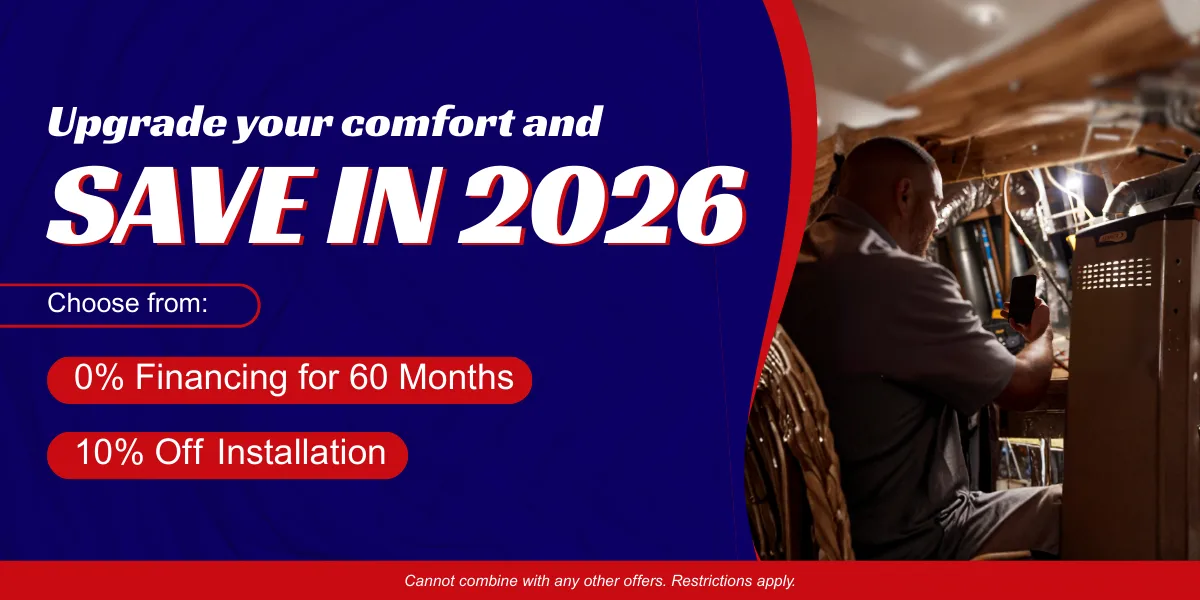Advances in heating, ventilation and air conditioning have come rapidly in the 21st century, and the commercial sector is no exception. Staying ahead of these trends is a good way to save money and keep up with industry standards. If you own a business, you need to be aware of the following commercial HVAC trends for 2024 and beyond.
Transitioning Refrigerants
Especially if your business occupies an older building, the move to more modern refrigerants in its HVAC units is a must. Regulations are increasingly cracking down on old systems. Also, many older systems are rapidly decaying and in need of retrofits. Many businesses want to present an eco-friendly face, and transitioning your HVAC refrigerants is an easy win on this front. The modernity of the HVAC system’s refrigerants even affects your building’s value.
Efficiency
Energy efficiency has been a major HVAC trend for a while, but rising energy costs have accelerated the push significantly. Even at the scale of a small business with one building, the expected savings will often quickly offset the cost of adopting more efficient solutions. Modern systems with high SEER values are easier to find than ever before, too. Particularly if you’re looking at replacing your HVAC systems this year, this is an excellent time to consider purchasing a high-efficiency replacement.
If you’re not ready to rip out key components and start over with a high-efficiency system, there are still options like improved HVAC management, hunting down leaks, and insulating systems. Minor retrofits often yield excellent results. Every bit makes a difference on your utility bill when your business is regularly using a heating and cooling system. Commercial building HVAC load balancing is an important aspect of making sure indoor air temperatures are consistent.
Right-sizing is a popular option during building construction and HVAC installation, too. It may also be useful during a retrofit. The goal is to calculate the building’s HVAC needs as tightly as possible to avoid excess capacity by using a specific size of unit. This reduces waste and will ultimately save you some money.
Indoor Air Quality
Concerns about allergies, pollution, and airborne illnesses have all dramatically shifted attitudes about indoor air quality in recent years. Air filtration systems can significantly reduce all these risk factors, and they scale especially well inside commercial buildings. A bonus is that your business will smell better, too. Improved indoor air quality gets rid of musty smells, and that can make your place of business more generally appealing to your employees and the public.
There are plenty of ways to address indoor air quality, too. HVAC systems with humidity controls can reduce allergens and limit mold growth in a building. Improved ventilation will also help in many instances. Even the design of the ducting system can affect indoor air quality by minimizing places where irritants might collect.
High-Velocity HVAC
Businesses often have to heat and cool large spaces. Improving the airflow in these spaces can make a noticeable difference. One of the simplest ways to address this issue is to use a high-velocity HVAC system. Pressurized systems can push high volumes of air quickly through a big building. Modern systems also operate quieter even at these high velocities, so you can implement these solutions without a major trade-off.
Smart Systems
Today’s HVAC technologies pull a lot of computing power to work for businesses at a surprisingly low price. Smart technologies provide automation for a host of HVAC needs. You can configure a smart thermostat to turn the temperature down during your closed hours and even warm things up just in time for people to get there. Smart systems also provide zonal control so that you can heat and cool different parts of a building to different levels. Technologies even allow control of discrete components like fans and dampers to micromanage the HVAC system’s performance.
Smart technologies offer lots of data, too. You can check how many cycles your HVAC unit is running each month to see how well it’s holding up. This information can give you a leg up on potential maintenance and repair needs so that you can call our technicians before a major problem hits. You can even get data about air quality thanks to sensors in the system, monitoring everything from particle levels to humidity.
Occupancy-based HVAC systems are also appealing smart solutions. By tracking how many people are in a space, you can alert the HVAC that it may need to raise or lower its output to keep up with demands.
Wireless Systems
Smart systems are often connected to wireless ones, too. Handling connections to the HVAC over Wi-Fi offers much greater flexibility than a wired system can provide. For example, you can access the thermostat from anywhere in the building using a phone or other device. Especially if you’re dealing with a huge structure, it is nice to turn off the thermostat without the need to walk the whole way to the panel.
Wireless systems provide better monitoring, too. You can easily access data about the conditions in the building. This is particularly important for businesses that need to tightly control conditions in their structures. If the humidity level starts to rise, the wirelessly connected systems can send you an alert quickly.
Wireless connectivity also allows you to install more sensors. Not only can you monitor the conditions around the HVAC unit and vents, but you can also connect the system to sensors far from the registers. This will provide a better picture of how well the HVAC is performing. Especially in big buildings, this kind of information will make tuning the system easier.
Oil to Gas Conversion
On the heating side of the ledger, many businesses in the Greater Nashua region use older oil-based systems. Converting to a system that employs natural gas can improve efficiency and air quality. It also can reduce your company’s dependence on oil shipments, assuring a consistent source of heating fuel regardless of how much demand you have during the coldest months. Converting the system is a good way to reduce your company’s carbon footprint, too. Contact us for oil to gas conversions!
Noise Reduction
Many business-grade HVAC units are noisy. This is especially true with older units due to age or even design. With numerous modern options, there’s no reason to tolerate a noisy HVAC system in 2024. Newer fans and HVAC units are available with significant noise reduction, and we can also test the levels to verify that the system has achieved the desired level of noise reduction.
Government Incentives
Federal, state and local programs and taxing authorities are increasingly offering incentives to businesses that upgrade or economize their HVAC systems. You may want to talk with your accountant or tax preparer to learn if incentives, deductions or rebates are available that could defray the cost of improving your commercial HVAC.
Joyce Cooling & Heating Inc. has proudly served the Greater Nashua, NH region for years. Our certified technicians are prepared to address numerous heating and cooling needs for businesses, including repairs, installations and maintenance.
To learn more about any of the HVAC trends listed here, contact Joyce Cooling & Heating Inc. name today to arrange a consultation!


